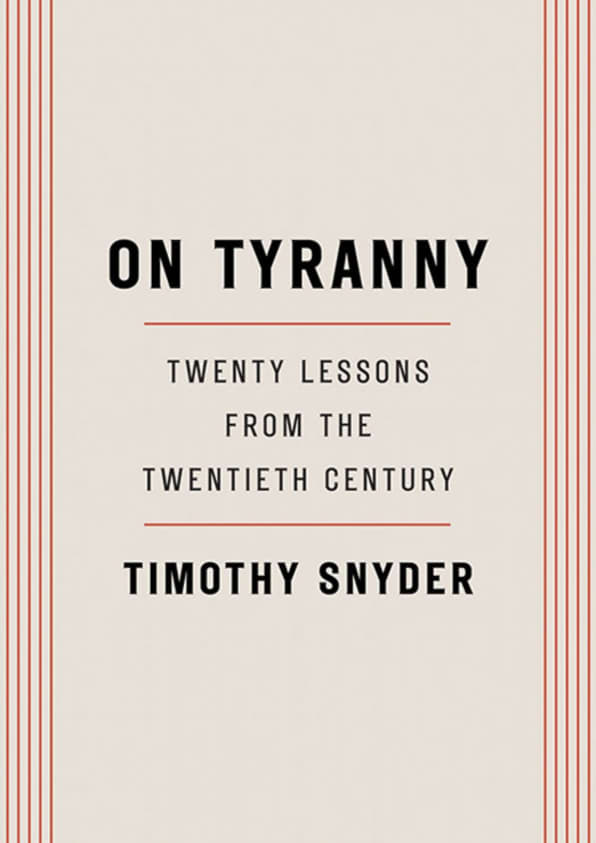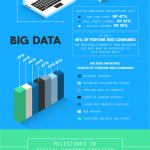We Need To Figure Things Out For Ourselves
A week after the election, Yale history professor Timothy Snyder posted an ominous warning on his Facebook page. “Americans are no wiser than the Europeans who saw democracy yield to fascism, Nazism, or communism,” he wrote. “Our one advantage is that we might learn from their experience.” The post, titled “20 Lessons From the 20th Century,” quickly went viral, accumulating tens of thousands of shares. In a new book, On Tyranny, Snyder expounds upon those lessons for our own era of upheaval. Here’s one.
Investigate. Figure things out for yourself. Spend more time with long articles. Subsidize investigative journalism by subscribing to print media. Realize that some of what is on the internet is there to harm you. Take responsibility for what you communicate with others.
In 1971, contemplating the lies told in the United States about the Vietnam War, the political theorist Hannah Arendt took comfort in the inherent power of facts to overcome falsehoods in a free society: “Under normal circumstances the liar is defeated by reality, for which there is no substitute; no matter how large the tissue of falsehood that an experienced liar has to offer, it will never be large enough, even if he enlists the help of computers, to cover the immensity of factuality.”
The part about computers is no longer true. In the 2016 presidential election, the two-dimensional world of the internet was more important than the three-dimensional world of human contact. People going door-to-door to canvass encountered the surprised blinking of American citizens who realized that they would have to talk about politics with a flesh-and-blood human being rather than having their views affirmed by their Facebook feeds. Within the two-dimensional internet world, new collectivities have arisen, invisible by the light of day— tribes with distinct worldviews, beholden to manipulations. (And yes, there is a conspiracy that you can find online: It is the one to keep you online, looking for conspiracies.)
We need print journalists so that stories can develop on the page and in our minds. What does it mean, for example, that the president says that women should be punished for having abortions, calls them “slobs,” “pigs,” or “dogs,” and says that it is permissible to sexually assault them? We can learn all of these things on various media. When we learn them from a screen, however, we tend to be drawn in by the logic of spectacle. When we learn of one scandal, it just whets our appetite for the next one. Once we subliminally accept that we are watching a reality show rather than thinking about real life, no image can actually hurt the president politically.
The better print journalists allow us to consider the meaning, for ourselves and our country, of what might otherwise seem to be isolated bits of information. But while anyone can repost an article, researching and writing is hard work that requires time and money.
Try for yourself to write a proper article, involving work in the real world: traveling, interviewing, maintaining relationships with sources, researching in written records, verifying everything, writing and revising drafts, all on a tight and unforgiving schedule. If you find you like doing this, keep a blog. In the meantime, give credit to those who do all of that for a living.
The Czech dissident Václav Havel dedicated his most important essay, “The Power of the Powerless,” to a philosopher who died shortly after interrogation by the Czechoslovak Communist secret police. In Communist Czechoslovakia, this pamphlet had to be circulated illegally, in a few copies, samizdat-style. “If the main pillar of the system is living a lie,” he wrote, “then it is not surprising that the fundamental threat to it is living in truth.” Since in the age of the internet we are all publishers, each of us bears some private responsibility for the public’s sense of truth. If we are serious about seeking the facts, we can each make a small revolution in the way the internet works.

“What is truth?” Sometimes people ask this question because they wish to do nothing. Generic cynicism makes us feel hip and alternative even as we slip along with our fellow citizens into a morass of indifference. It is your ability to discern facts that makes you an individual, and our collective trust in common knowledge that makes us a society. The individual who investigates is also the citizen who builds. The leader who dislikes the investigators is a potential tyrant.
We do not see the minds that we hurt when we publish falsehoods, but that does not mean we do no harm. Think of driving a car. We may not see the other driver, but we know not to run into his car. We know that the damage will be mutual. We protect the other person without seeing him, dozens of times every day. Likewise, although we may not see the other person in front of his or her computer, we have our share of responsibility for what he or she is reading there. If we can avoid doing violence to the minds of unseen others on the internet, others will learn to do the same. And then perhaps our internet traffic will cease to look like one great, bloody accident.
Adapted from On Tyranny, copyright © 2017 by Timothy Snyder. Used with permission of Penguin Random House, New York. All rights reserved.
(33)














